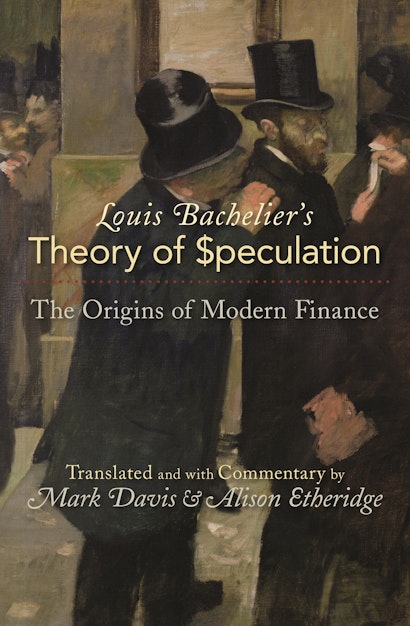Louis Bachelier's Theory of Speculation: The Origins of Modern Finance


Hardcover
- Price:
- $87.00/£72.00
- ISBN:
- Published:
- Sep 25, 2006
- Copyright:
- 2007
- Pages:
- 208
- Size:
- 6 x 9.25 in.
- 17 line illus.
ebook
March 29, 1900, is considered by many to be the day mathematical finance was born. On that day a French doctoral student, Louis Bachelier, successfully defended his thesis Théorie de la Spéculation at the Sorbonne. The jury, while noting that the topic was “far away from those usually considered by our candidates,” appreciated its high degree of originality. This book provides a new translation, with commentary and background, of Bachelier’s seminal work.
Bachelier’s thesis is a remarkable document on two counts. In mathematical terms Bachelier’s achievement was to introduce many of the concepts of what is now known as stochastic analysis. His purpose, however, was to give a theory for the valuation of financial options. He came up with a formula that is both correct on its own terms and surprisingly close to the Nobel Prize-winning solution to the option pricing problem by Fischer Black, Myron Scholes, and Robert Merton in 1973, the first decisive advance since 1900.
Aside from providing an accurate and accessible translation, this book traces the twin-track intellectual history of stochastic analysis and financial economics, starting with Bachelier in 1900 and ending in the 1980s when the theory of option pricing was substantially complete. The story is a curious one. The economic side of Bachelier’s work was ignored until its rediscovery by financial economists more than fifty years later. The results were spectacular: within twenty-five years the whole theory was worked out, and a multibillion-dollar global industry of option trading had emerged.